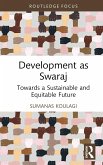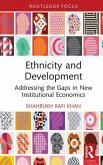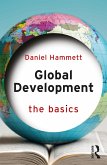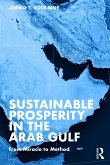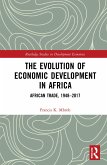This book offers an in-depth insight into the Indian concept of swaraj--self-rule--both in theory and practice and posits it within the larger context of development.
It opens by discussing the limitations of prevailing sustainable development paradigm as well as other heterodox development paradigms in achieving a sustainable and equitable future. Further, it constructs development theory around the idea of swaraj, based on the writings of M K Gandhi and J C Kumarappa. The swaraj development vision weaves in the morality of the greatest good of all, political decentralisation, and economic self-sufficiency as important elements to achieve an exploitation-free social order that ensures more control for individuals over their lives. It reveals sustainability and equality as inherent features of such a non-violent social order.
The book then provides an introduction to the khadi--handspun and handwoven textile--sector, which is taken as a case study to demonstratethe swaraj development approach. The use of this sector helps readers to get a snapshot of the efforts that have been made since the time of Gandhi and Kumarappa towards the attainment of swaraj. Importantly, the khadi section highlights the method of translating theory into practice based on the unique three-pronged approach of the swaraj development paradigm. By showcasing how to establish swaraj within the khadi sector, the author offers insights into how it can be replicated for attaining a sustainable and equitable world.
The book will appeal to scholars and researchers in the fields of Gandhian studies and development studies.
It opens by discussing the limitations of prevailing sustainable development paradigm as well as other heterodox development paradigms in achieving a sustainable and equitable future. Further, it constructs development theory around the idea of swaraj, based on the writings of M K Gandhi and J C Kumarappa. The swaraj development vision weaves in the morality of the greatest good of all, political decentralisation, and economic self-sufficiency as important elements to achieve an exploitation-free social order that ensures more control for individuals over their lives. It reveals sustainability and equality as inherent features of such a non-violent social order.
The book then provides an introduction to the khadi--handspun and handwoven textile--sector, which is taken as a case study to demonstratethe swaraj development approach. The use of this sector helps readers to get a snapshot of the efforts that have been made since the time of Gandhi and Kumarappa towards the attainment of swaraj. Importantly, the khadi section highlights the method of translating theory into practice based on the unique three-pronged approach of the swaraj development paradigm. By showcasing how to establish swaraj within the khadi sector, the author offers insights into how it can be replicated for attaining a sustainable and equitable world.
The book will appeal to scholars and researchers in the fields of Gandhian studies and development studies.
"It is clear in this climate-risked times, local communities must have control over their natural resources for livelihood security. I would argue that the new paradigm of development has to be rooted on the principle of self-rule. Sumanas's unique childhood background and academic work provides us important insights into the why and how this can be done. This is a must read." - Sunita Narain, Centre for Science and Environment, Delhi
"This book very succinctly captures and brings back the central idea that was propagated by Gandhiji and Kumarappa to the fore. I strongly recommend the book as a stimulus for the development of an exploitation free social order, which is inherently sustainable and equitable." - Ela Gandhi, Phoenix Settlement Trust, Gandhi Development Trust, and Religions for Peace International, South Africa.
"Very interesting and important topic." - Noam Chomsky, MIT
"Sumanas offers a close, friendly and frank study of the concept of Swaraj and produced a pertinent reflection on development, the environment, and human dignity." - Rajmohan Gandhi, author of biographies and histories, including India After 1947 (2022)
"This book offers a courageous reinvigoration for today's crisis-ridden world. A refreshing vision of hope, written with inspiring clarity, that reasserts an indigenous Indian concept of development based on Swaraj." - Felix Padel, Centre for World Environment History, University of Sussex
"In times of increasing global inequality, deteriorating democratic institutions and escalating climate catastrophe, Sumanas recovers vital insights from Gandhi and Kumrappa's conception of Swaraj, an alternative paradigm of development. This book offers us a vision of how to surmount the violence inherent in prevailing systems of moral political economy." - Earl Gammon, Centre for Global Political Economy, University of Sussex
"Development as Swaraj,
must be read as a corrective to the dominant development paradigm based on political centralisation and economic growth. One cannot contest Sumanas's argument for the critical need for the reassertion of a socio-political economic order, which couples progress with ethics." - Aruna Roy, Social Activist, and member of Mazdoor Kisan Shakti Sangathan (MKSS)
"Ever since the National Planning Committee of 1938 sidelined the position represented in it by J.C.Kumarappa, Gandhian ideas about political economy receded into the background and were never given a serious run in India. In the small, but devoted, body of writing that still explores the great merit in those ideas, Sumanas Koulagi's new work is a very worthy addition. Drawing upon a scrutiny of the Khadi institutions in Karnataka, Koulagi presents an argument for integrating the notion of development with Gandhi's ideal of Swaraj, and deploys it skillfully to make fundamental criticisms of prevailing notions of development, including the seemingly well-intentioned ideas around the notion of 'sustainable' development. This is a very thoughtful book and a very necessary one." - Akeel Bilgrami, Columbia University
"Important and brilliant subject." - Robert Chambers, IDS, UK
"This book is a much-needed contribution towards the existing literature on swaraj and khadi. It is the combination of theory and practice that gives value to this account." - Uzramma Malkha, India
"Swaraj
has resonance unequalled by any word in the Indian subcontinent. Sumanas Koulagi through insightful reading of Gandhi and J C Kumarappa has delved deep into the universe of Swaraj. His reading is deeply political and one that urges us to action. It is both a paean and a panacea to India." - Tridip Suhrud, Professor and Provost CEPT University, Ahmedabad
"I endorse and would strongly recommend that young Indian citizens read and digest the pulsating heartbeat of Sumanas Koulagi's vital book, Development as Swaraj as a way of preventing the impending tragedy of intergenerational colonisation that threatens to overwhelm and erode the gains of India's non-violent Independence movement. Not surprisingly, the author accurately hones in on 'the gradual disappearance of wilderness' as a key factor that has brought us to a near-breakdown of India's ecological and social structures, without which any hope of peace would be a chimera." - Bittu Sahgal, Sanctuary Asia
"Sumanas Koulagi's book draws from the work of these two giants - Gandhi, the patron saint of the environment and Kumarappa, the green voice. The book is an extended version of his Ph.D. dissertation, and the theoretical academic analysis is beautifully complemented by his work with the Janapada Seva Trust's Khadi Initiative. This book reads like the result of a deeply personal journey informed by careful social and ecological observations, on how to fulfil life's purpose without harming the environment and human rights. [...] The ideas Sumanas presents not only encourage the reader to consider the existing socio-economic order, but also spark self-reflection [...] his march towards reform and reimagination and the practice of the Swaraj Development Paradigm is an important contribution to actionable change for equity and the environment." - Shatakshi Gawade, Sanctuary Asia, February 2023
"Development As Swaraj by Sumanas Koulagi draws attention to the twin principles of sustainability and equity that have the potential to create a new paradigm of development, thereby giving a new sense of direction for humanity to follow, and in the bargain, save our civilisation from a collapse. [...] This book will not only interest students and development practitioners but can also serve as an important guide for policymakers." - Devinder Sharma, Hunting for a new paradigm, appearing in Deccan Herald, Mar 2024
"The book is a competent assessment of swaraj and a proposal for recognising the potential of the idea as an alternative form of development. It is also a sharp critique of today's dominant development model, and an account of an alternative model of production, as represented by the running of the khadi unit." - A.R. Vasavi, In Search Of Alternative Moral Political Economies, appearing on The India Forum, Jan 2024
"This book very succinctly captures and brings back the central idea that was propagated by Gandhiji and Kumarappa to the fore. I strongly recommend the book as a stimulus for the development of an exploitation free social order, which is inherently sustainable and equitable." - Ela Gandhi, Phoenix Settlement Trust, Gandhi Development Trust, and Religions for Peace International, South Africa.
"Very interesting and important topic." - Noam Chomsky, MIT
"Sumanas offers a close, friendly and frank study of the concept of Swaraj and produced a pertinent reflection on development, the environment, and human dignity." - Rajmohan Gandhi, author of biographies and histories, including India After 1947 (2022)
"This book offers a courageous reinvigoration for today's crisis-ridden world. A refreshing vision of hope, written with inspiring clarity, that reasserts an indigenous Indian concept of development based on Swaraj." - Felix Padel, Centre for World Environment History, University of Sussex
"In times of increasing global inequality, deteriorating democratic institutions and escalating climate catastrophe, Sumanas recovers vital insights from Gandhi and Kumrappa's conception of Swaraj, an alternative paradigm of development. This book offers us a vision of how to surmount the violence inherent in prevailing systems of moral political economy." - Earl Gammon, Centre for Global Political Economy, University of Sussex
"Development as Swaraj,
must be read as a corrective to the dominant development paradigm based on political centralisation and economic growth. One cannot contest Sumanas's argument for the critical need for the reassertion of a socio-political economic order, which couples progress with ethics." - Aruna Roy, Social Activist, and member of Mazdoor Kisan Shakti Sangathan (MKSS)
"Ever since the National Planning Committee of 1938 sidelined the position represented in it by J.C.Kumarappa, Gandhian ideas about political economy receded into the background and were never given a serious run in India. In the small, but devoted, body of writing that still explores the great merit in those ideas, Sumanas Koulagi's new work is a very worthy addition. Drawing upon a scrutiny of the Khadi institutions in Karnataka, Koulagi presents an argument for integrating the notion of development with Gandhi's ideal of Swaraj, and deploys it skillfully to make fundamental criticisms of prevailing notions of development, including the seemingly well-intentioned ideas around the notion of 'sustainable' development. This is a very thoughtful book and a very necessary one." - Akeel Bilgrami, Columbia University
"Important and brilliant subject." - Robert Chambers, IDS, UK
"This book is a much-needed contribution towards the existing literature on swaraj and khadi. It is the combination of theory and practice that gives value to this account." - Uzramma Malkha, India
"Swaraj
has resonance unequalled by any word in the Indian subcontinent. Sumanas Koulagi through insightful reading of Gandhi and J C Kumarappa has delved deep into the universe of Swaraj. His reading is deeply political and one that urges us to action. It is both a paean and a panacea to India." - Tridip Suhrud, Professor and Provost CEPT University, Ahmedabad
"I endorse and would strongly recommend that young Indian citizens read and digest the pulsating heartbeat of Sumanas Koulagi's vital book, Development as Swaraj as a way of preventing the impending tragedy of intergenerational colonisation that threatens to overwhelm and erode the gains of India's non-violent Independence movement. Not surprisingly, the author accurately hones in on 'the gradual disappearance of wilderness' as a key factor that has brought us to a near-breakdown of India's ecological and social structures, without which any hope of peace would be a chimera." - Bittu Sahgal, Sanctuary Asia
"Sumanas Koulagi's book draws from the work of these two giants - Gandhi, the patron saint of the environment and Kumarappa, the green voice. The book is an extended version of his Ph.D. dissertation, and the theoretical academic analysis is beautifully complemented by his work with the Janapada Seva Trust's Khadi Initiative. This book reads like the result of a deeply personal journey informed by careful social and ecological observations, on how to fulfil life's purpose without harming the environment and human rights. [...] The ideas Sumanas presents not only encourage the reader to consider the existing socio-economic order, but also spark self-reflection [...] his march towards reform and reimagination and the practice of the Swaraj Development Paradigm is an important contribution to actionable change for equity and the environment." - Shatakshi Gawade, Sanctuary Asia, February 2023
"Development As Swaraj by Sumanas Koulagi draws attention to the twin principles of sustainability and equity that have the potential to create a new paradigm of development, thereby giving a new sense of direction for humanity to follow, and in the bargain, save our civilisation from a collapse. [...] This book will not only interest students and development practitioners but can also serve as an important guide for policymakers." - Devinder Sharma, Hunting for a new paradigm, appearing in Deccan Herald, Mar 2024
"The book is a competent assessment of swaraj and a proposal for recognising the potential of the idea as an alternative form of development. It is also a sharp critique of today's dominant development model, and an account of an alternative model of production, as represented by the running of the khadi unit." - A.R. Vasavi, In Search Of Alternative Moral Political Economies, appearing on The India Forum, Jan 2024



